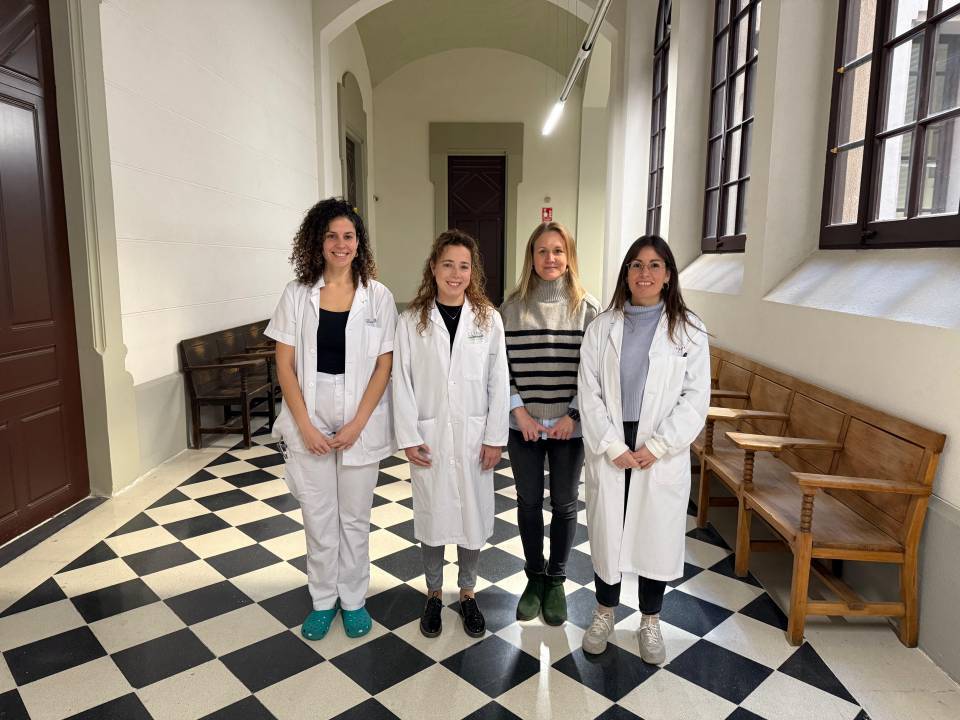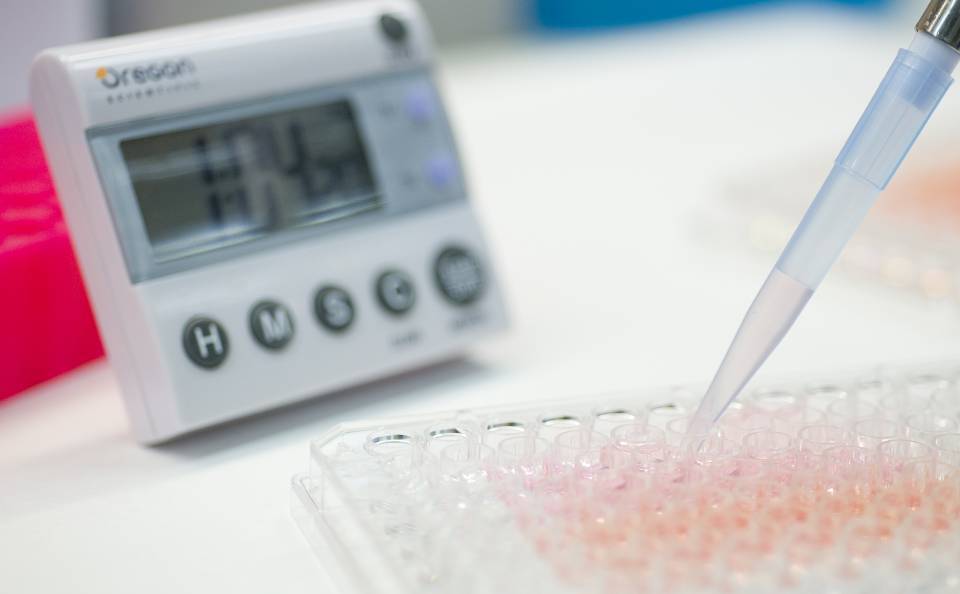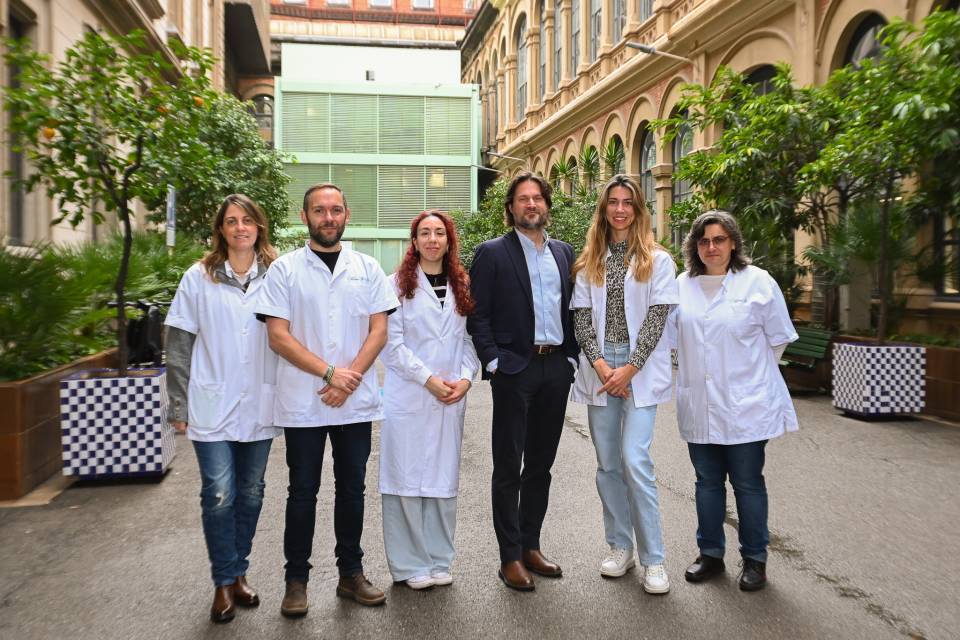Published in ESMO Open, the study shows that high levels of a 14-gene immunological profile in tumour samples are associated with a significant reduction in death risk in patients who appear to have overcome the disease, and this association is maintained, regardless of the type of breast cancer or the patient's age.
The study was coordinated by Dr. Fara Brasó-Maristany, researcher in the IDIBAPS Translational Genomics and Targeted Therapies in Solid Tumours group, and Dr. Aleix Prat, director of the Clínic Institute of Cancer and Blood Disorders and head of the IDIBAPS group. It was co-led with Reveal Genomics and with the collaboration of numerous research groups, both in Catalonia, such as ICO-IDIBELL and VHIO, and in the USA, including the Lineberger Comprehensive Cancer Center (Chapel Hill) and the Harvard-Dana-Farber Cancer Institute (Boston).
The team previously demonstrated an association between high levels of IGG in tumours and a reduced risk of relapse. In this new study, and through the analysis of data from 9,638 patients in three distinct cohorts, the research team found that in breast cancer patients who had not relapsed and whose tumours had high levels of IGG there was a 41-47% reduction in death risk compared with those who had low levels of IGG.
As the first author of the study, Dr. Laura Angelats, oncologist at the Clínic and researcher at the Clínic-IDIBAPS, highlights the importance of the results: “Our work shows that the IGG profile goes beyond its previously known role in the detection of breast cancer recurrence. Now we see its potential as a marker of immune health and protection in patients free of recurrence.”
Dr. Fara Brasó-Maristany, explains that, "this finding not only reinforces the critical role played by the immune system in breast cancer survival, but also opens the door to new diagnostic tools and treatment strategies. By integrating immunological profiles such as the IGG signature, we can move towards true precision oncology that addresses both the tumour and the patient's immune response."
Integration of single-cell sequencing and the immune profile
The study included new technologies such as the spatial analysis of the tumour’s immunological microenvironment (spatial profiling) in over 130 patients, which made it possible to study how the cells in the immune system are organized within the tumour, and single-cell sequencing, which was carried out in collaboration with Omniscope, providing detailed characteristics of each individual immune cell.
These analyses revealed the active role of B and T cells, closely linked to the presence of tertiary lymphoid structures (TLS), specialized immune niches within tumours associated with anti-tumour responses. Moreover, T-cell receptor (TCR) and B-cell receptor (BCR) sequencing showed the diversity and activity of adaptive immune responses, providing further evidence of the protective role of the immune system in patients free of recurrence. These results highlight the IGG profile as a comprehensive marker that reflects not only immunological infiltration, but also the functional organization of immune responses within tumours.

HER2DX®: A key innovation in precision oncology
The immunological profile of 14 genes is a central component of HER2DX®, the world’s first diagnostic test formulated specifically for HER2+ breast cancer. Co-designed by the Clínic-IDIBAPS, the University of Padua and the Campus Clínic and VHIO spin-off, Reveal Genomics®, HER2DX® integrates clinical and genomic data to provide a complete assessment of the risk of relapse, the likelihood of achieving a pathological complete response (pCR) to treatment, and the ERBB2 expression levels. Clinically validated and already benefiting patients, HER2DX® has become a transformative tool in precision oncology. In recognition of its impact, TIME magazine included HER2DX® in its list of “Best Inventions” of 2022.
Integrating the biology of the immune system into cancer research
Based on these results, the team will further investigate the IGG profile and its implications in breast cancer and other types of cancer. This research aims to deepen the understanding of the role of the immune system in general health and to advance in the development of innovative diagnostic and therapeutic strategies.
Dr. Aleix Prat adds: “this study underlines the power of information provided by the immune system when it interacts with the tumour. Through our research into breast cancer and other types of cancer, and by taking advantage of advanced genetic tools, we aim to improve both the survival results and the quality of life of patients who have had cancer.”
Article reference:
Angelats L, Paré L, Rubio-Perez C, Sanfeliu E, González A, Seguí E, Villacampa G, Marín-Aguilera M, Pernas S, Conte B, Albarrán-Fernández V, Martínez-Sáez O, Aguirre Á, Galván P, Fernandez-Martinez A, Cobo S, Rey M, Martínez-Romero A, Walbaum B, Schettini F, Vidal M, Buckingham W, Muñoz M, Adamo B, Agrawal Y, Guedan S, Pascual T, Agudo J, Grzelak M, Borcherding N, Heyn H, Vivancos A, Parker JS, Villagrasa P, Perou CM, Prat A, Brasó-Maristany F. Linking tumor immune infiltration to enhanced longevity in recurrence-free breast cancer. ESMO Open. 2025 Jan 6;10(1):104109. doi: 10.1016/j.esmoop.2024.104109.




